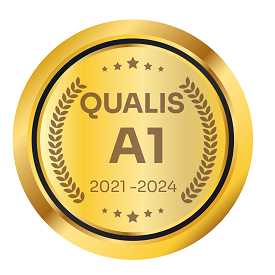Algunas características de la sistematización de Programas Internacionales Conjuntos de Educación Superior
DOI:
https://doi.org/10.22633/rpge.v25iesp.1.14997Palabras clave:
Programas internacionales conjuntos, Programas de doble titulación, Titulaciones consecutivas, Internacionalización de la educación, InterdisciplinariedadResumen
En este artículo se analiza el tema de la sistematización de los programas conjuntos internacionales en educación superior. Los autores analizan los criterios para diferenciar varios tipos de programas conjuntos internacionales. En particular, los autores proponen distinguir entre programas internacionales de doble titulación y programas de doble titulación. Las diferentes clasificaciones de los programas conjuntos internacionales se fundamentan mediante el análisis de la experiencia exitosa de su implementación en Rusia y en el extranjero en el contexto de la globalización y la integración educativa internacional. El artículo también da terreno a los criterios generales de la efectividad de la implementación de varios tipos de programas educativos conjuntos. Se concluye que la sistematización de programas conjuntos internacionales permitirá evitar confusiones terminológicas, y considerando que dichos programas son desarrollados e implementados por universidades con diferentes antecedentes de diferentes regiones del mundo, a veces incluso de diferentes sistemas educativos, este enfoque será muy importante. simplificar la cooperación académica entre universidades de diferentes países en el contexto de las diferencias culturales y las características particulares de las diferentes regulaciones legislativas nacionales. Considerando los diferentes tipos de programas internacionales conjuntos y la práctica de su implementación en las universidades, los autores parten del hecho de que todos estos programas representan formas efectivas de crear un único espacio europeo de educación superior, una herramienta importante para implementar los principios del proceso de Bolonia. En cuanto a la tarea de mejorar la competitividad de las universidades que implementan programas conjuntos internacionales, el artículo también identifica los importantes beneficios para los estudiantes que adquieren competencias profesionales específicas interculturales, comunicativas, así como interdisciplinarias y, respectivamente, ventajas en el empleo, tanto en su propio país como en extranjero.
Descargas
Citas
ASGARY, N. Patricia foster benefits and challenges of dual degree programmes: case of EU and the United States. 2013. Available: https://www.joiman.eu/ProjectResults/PublicDeliverables/Papers/MASTER_Benefits%20and%20Challenges%20of%20Dual%20Degree%20Programmes_Case%20of%20EU%20and%20United%20States_Asgary-Foster.pdf. Access: 10 dec. 2020.
GORYLEV, A. I.; KUZNETSOVA, S. N. Joint educational programmes as an instrument of internationalization (the example of the Faculty of Law of Lobachevsky University). Bulletin of the Lobachevsky State University of Nizhny Novgorod.Series: SocialSciences, v. 1, n. 45, p. 150-155, 2017.
KNIGHT, J. Doubts and dilemmas with double degree programs. International Journal of Educational Technology in Higher Education, v. 8, n. 2, p. 297-312, 2011.
KOSMODEMYANSKAYA, S.; NIZAMOV, I.; YARULLIN, I. Information and educational environment in the system of practices of the future teacher of chemistry. QUID: Investigación, Ciencia y Tecnología, n. 1, p. 373-378, 2017.
MASLENNIKOVA, V. S.; TREGUBOVA, T. M.; KHUZIAKHMETOV, A. N. Theoretical and Methodological Problems of Developing Educational Innovations. Modern Journal of Language Teaching Methods, v. 7, n. 9/2, p. 63-71, 2017.
MASLENNIKOVA, V. S.; TREGUBOVA, T. M.; KHUZIAKHMETOV, A. N.; NASIBULLOV, R. R. The Problem of Innovative Development of The Modern Professional Education in Russia. The European Proceedings of Social & Behavioral Sciences EpSBS, р. 508-517, 2017.
MUKHAMETZYANOVA, F.; TREGUBOVA, T.; KAMALEEVA, A. International experience as resource for improvement of multi-cultural teacher education in Russia. The European Proceedings of Social & Behavioral Sciences EpSBS, p. 568-573, 2017.
NASIBULLOVA, G. R.; SALAKHOVA, R. I. Representation of beauty in English, Russian and Tatar linguocultures (on the material proverbs). Modern journal of language teaching methods, p. 45-49, 2016.
OLEYNIKOVA, O.N. Joint programmes of higher education as a factor of internationalization and increasing the efficiency of programmes. Bulletin of the Sholokhov Moscow State University for Humanities. Pedagogy and Psychology, n. 2, p. 69-79, 2014.
PORTUGAL. Joint Convention of the Council of Europe and UNESCO on recognition. Lisbon. Available: http://www.russianenic.ru/int/lisbon/index.html. Access: 10 dec. 2020.
RUSSELL, A. W.; DOLNICAR, S.; AYOUB, M. Double degrees: double the trouble or twice the return? Higher Education, v. 55, n. 5, p. 575-591, 2008.
TAUCH, C.; RAUHVARGERS, A. Survey on master’ degrees and joint degrees in Europe. 2002.
UNITED KINGDOM. Joint degree programme with the University of Nottingham Trent. 2011. Available: http://www.iee.unn.ru/files/2016/10/buklet-dlya-sajta.pdf. Access: 10 dec. 2020.
Publicado
Cómo citar
Número
Sección
Licencia
Derechos de autor 2021 Revista on line de Política e Gestão Educacional

Esta obra está bajo una licencia internacional Creative Commons Atribución-NoComercial-CompartirIgual 4.0.
Manuscritos aceitos e publicados são de propriedade da Revista on line de Política e Gestão Educacional. É vedada a submissão integral ou parcial do manuscrito a qualquer outro periódico. A responsabilidade do conteúdo dos artigos é exclusiva dos autores. É vedada a tradução para outro idioma sem a autorização escrita do Editor ouvida a Comissão Editorial Científica.











